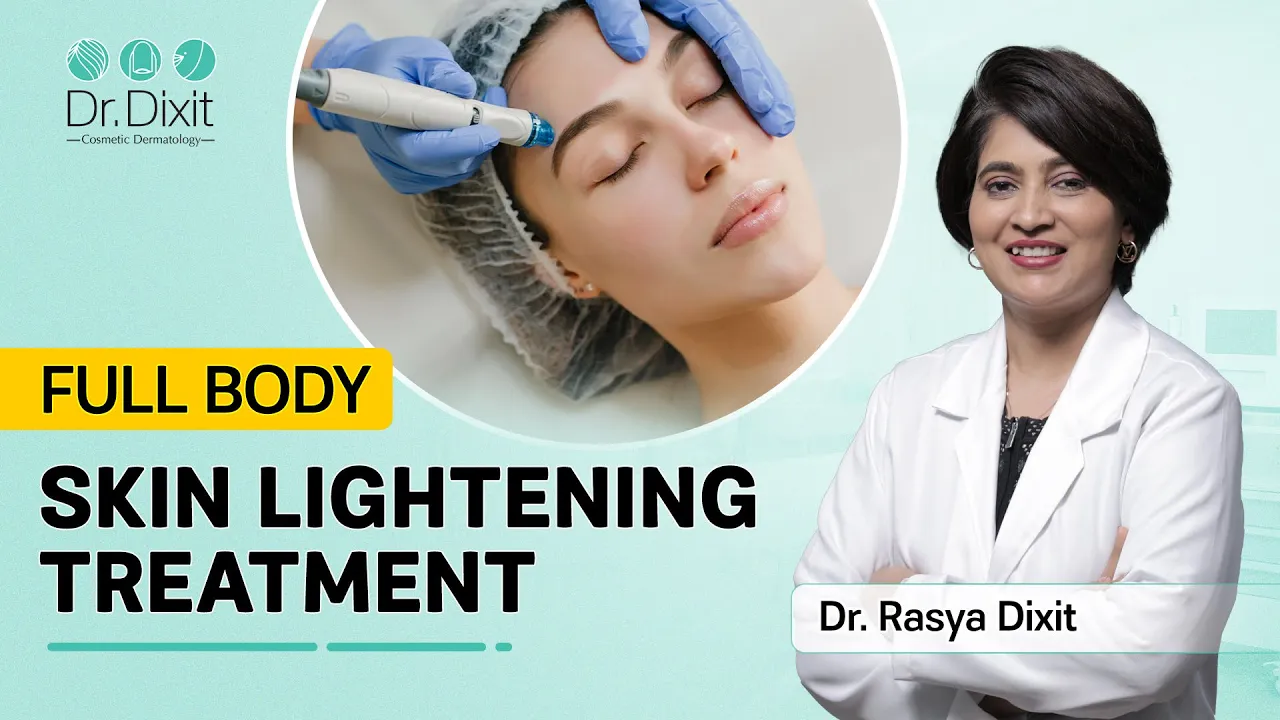Popular Treatment for Skin Whitening Recommended by Dermatologist

There are various individuals seeking skin whitening or brightening treatments to even out pigmentation, reduce dark spots, and achieve a more radiant complexion. Expert dermatologists now offer safe and effective Skin Whitening Treatment in Bangalore, tailored to the patient's skin type, the cause of uneven tone, and realistic expectations.
Here are some of the most commonly suggested and clinically supported methods of skin whitening:
1. Topical Brightening Agents
Dermatologists often begin skin whitening treatments with topical treatments. These are creams, serums, or lotions containing active ingredients. Such ingredients act to reduce melanin production or help remove pigmented skin cells.
-
Hydroquinone: It is a popular tyrosinase inhibitor that effectively fades dark spots and melasma. However, it should be used under supervision as its overuse can cause irritation or rebound hyperpigmentation.
-
Kojic Acid: It is derived from fungi or fermented rice, which acts to fade sun spots and dark patches. It inhibits pigment production rather than strong exfoliation.
-
Azelaic Acid: It is often used to treat acne and pigmentation. This treatment is suitable for individuals with sensitive skin and darker skin tones. It also works by inhibiting tyrosinase.
-
Vitamin C: Known for antioxidant action; helps in reducing pigmentation caused by UV damage and also brightens skin tone. Frequently included in serums and creams.
These topical agents typically take certain weeks to give visible improvement. They are often part of long‑term skincare routines rather than one‑off solutions.
2. Chemical Peels
Chemical peels involve the application of a chemical solution, such as glycolic acid, salicylic acid, or TCA, to remove the top layers of skin. As the skin regenerates, it will reveal a newer, lighter, more even skin.
Peels come in multiple strengths, ranging from superficial to medium to deep, depending on the pigmentation level to be treated, and downtime is acceptable. Dermatologists select the level based on the patient's skin sensitivity, pigmentation depth, and individual desires.
3. Laser and Light‑Based Therapies
This treatment is suitable for those with stubborn pigmentation or uneven tone. Q‑switched lasers and non‑ablative fractional lasers are used to break up pigment particles and stimulate skin renewal.
These treatments often require multiple sessions, and protection from sun exposure afterward is critical to prevent recurrence of pigmentation.
4. Microdermabrasion and Other Exfoliation Methods
Microdermabrasion gently exfoliates the skin's surface using fine crystals or diamond-tipped tools. It helps remove dead skin cells, enhances skin texture, and lightens pigmentation.
Although this procedure is less intensive than peels or lasers, it has minimal downtime. It usually requires multiple sessions to give noticeable changes.
5. Glutathione and Systemic Treatments
Glutathione is an antioxidant that is used for skin whitening. It can be used either as an injection or a supplement. Several systemic agents are also adised in certain clinics. However, take it only if your dermatologists recommend it.
Important considerations and safety measures:
-
Patch tests are required before using potent topical agents or undergoing peels or laser treatments.
-
Sun protection is essential, as UV exposure can undo much of the progress.
-
Be aware of possible side effects, such as irritation, temporary darkening, or sensitivity, especially with stronger treatments.
-
Have realistic expectations with the treatment. Whitening or brightening does not offer a dramatic change overnight. Many treatments need repeated sessions and patience.
-
Choose treatments based on the cause of pigmentation: post‑inflammatory marks, sun damage, hormonal (melasma), and so on.
People living in Bangalore, India, often suffer from pigmentation due to sun damage, age-related factors, hormonal imbalances, or genetic predispositions. With these skin whitening treatments, individuals can achieve clear skin by using topical gels or undergoing a few sessions of peels or lasers, as recommended by their dermatologist.
Learn more about these treatments with Dr. Rasya Dixit, a leading dermatologist, to find a plan designed for your skin’s needs. One can consult her at Best Skin Clinic in Bangalore, Dr. Dixit Cosmetic Dermatology, for more details.
- Art
- Causes
- Crafts
- Dance
- Drinks
- Film
- Fitness
- Food
- الألعاب
- Gardening
- Health
- الرئيسية
- Literature
- Music
- Networking
- أخرى
- Party
- Religion
- Shopping
- Sports
- Theater
- Wellness


